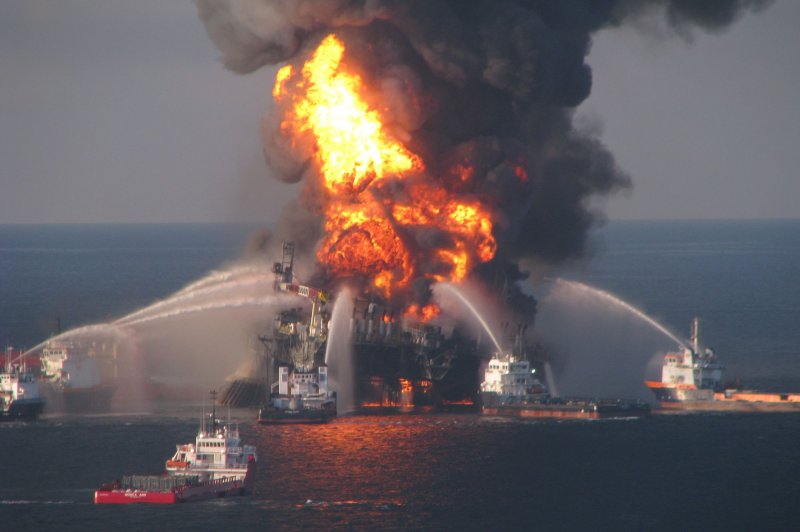Fire boat response crews battle the blazing remnants of offshore oil rig Deepwater Horizon, off the coast of New Orleans, Louisiana on April 21, 2010. (UPI/U.S. Coast Guard) |
License Photo
NEW YORK, April 17 (UPI) -- The Securities and Exchange Commission charged a former BP employee with insider trading, for offloading his stock portfolio using confidential information relating to the Deepwater Horizon spill.
Keith A. Seilhan, who was a crisis manager with British Petroleum, agreed to charges that he violated securities laws by selling his family's $1 million portfolio of BP securities. The SEC charged that he avoided nearly $100,000 in losses as BP's stock prices plummeted 50 percent, as news of the fire and spill was made public.
"Corporate insiders must not misuse the material nonpublic information they receive while responding to unique or disastrous corporate events, even where they stand to suffer losses as a consequence of those events," said Daniel Hawke, chief of the SEC enforcement division's market abuse unit.
Seilhan has been ordered to return $105,409 of illegal profit he made, pay a civil penalty for the same amount and return $13,300 in prejudgement interest.
According to the Commission's investigation, Seilhan was in charge of BP's oil collection and cleanup operations after the Gulf of Mexico catastrophe. It was in this position that Seilhan was privy to vital information relating to the seriousness of the disaster, including oil flow information which was far worse than the 5,000 barrels per day figure made public by BP.
It later turned out that those estimates were between 52,700 and 62,200 barrels per day, nearly ten times what the public was being told.
Using this information Seilhan, sold his family's $1 million BP portfolio, which included common shares and options. He later repurchased shares at a lower price once BP announced that the well had been capped.
The settlement is subject to approval of a federal judge in Louisiana's eastern district.
[USAToday]
[Forbes]










